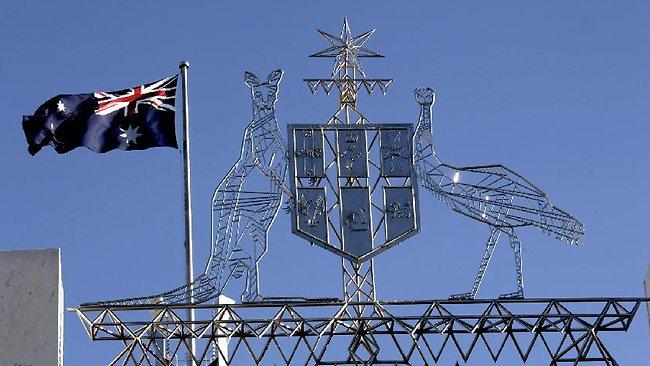MRRT will hurt Australia's competitiveness, senate report says
THE mining tax should be scrapped because it would damage Australia's global competitiveness, a senate inquiry said today.

A SENATE inquiry into the mining tax has estimated that Julia Gillard's government is facing a $21 billion black hole on its budget forecasts over the next decade.
In its report released today, the coalition-controlled committee said the minerals resource rent tax should be scrapped because it would damage Australia’s international competitiveness and would not produce enough revenue to fund the initiatives Labor had linked to it.
The report was released as miners at a Perth conference slammed Greens leader Bob Brown’s claim that most of Australia's mining industry is foreign-owned and that billionaires should be paying more tax.
A report commissioned by the Greens found that $50 billion in earnings from Australian mining investments will go overseas over the next five years.
Fortescue Metals Group chief executive Andrew Forrest said Senator Brown was “playing the man” and his comments ignored the fact that the Australian mining industry needed foreign capital to develop projects.
"I think what Mr Brown needs to do is to not support a tax that will exacerbate that situation and shift Australian ownership and development projects offshore because they can no longer afford to compete against projects that are already developed,” he said.
The chairman of the senate committee, Liberal senator Mathias Cormann, said the recurrent costs of initiatives linked to the MRRT would create a $19bn shortfall in the federal budget between 2012-13 and 2020-21.
This was in addition to the $2bn budget black hole created by WA Premier Colin Barnett’s move last month to increase his state’s iron ore royalties, leaving the commonwealth to pick up the bill.
Senator Cormann said Treasury figures showed that the MRRT would generate $38.5bn in the nine years from July 2012.
But the cost of measures to be funded by the MRRT was forecast at $57.6bn over that seam period, leaving a shortfall of $19bn.
Those measures include an increase in compulsory superannuation from 9 per cent to 12 per cent, a cut to the company tax rate and the government’s commitment to establish a regional infrastructure fund.
Comment on the figures was being sought from Treasurer Wayne Swan’s office.
The inquiry found that the MRRT was developed through a “deeply flawed” process in which the government negotiated with mining giants BHP Billiton, Rio Tinto and Xstrata.
It also found the tax would give an unfair competitive advantage to BHP, Rio and Xstrata, who were given "exclusive access" to negotiate the design of the new tax.
Senator Cormann said the tax should be abandoned.
"This tax is against the national interest and should be scrapped. The government should start afresh and embark on genuine tax reform through an open, transparent and inclusive process," he said.
A spokesman for federal Treasurer Wayne Swan did not directly address the numbers used in the report.
But the spokesman said Senator Cormann had rushed out a half-baked and blatantly political report so he could tell a miners’ conference that they paid too much tax.
He said the resources sector had a $430 billion pipeline of investment, which showed the outlook for the industry was bright and the Opposition scare campaign about the industry’s future was “complete rubbish”.


